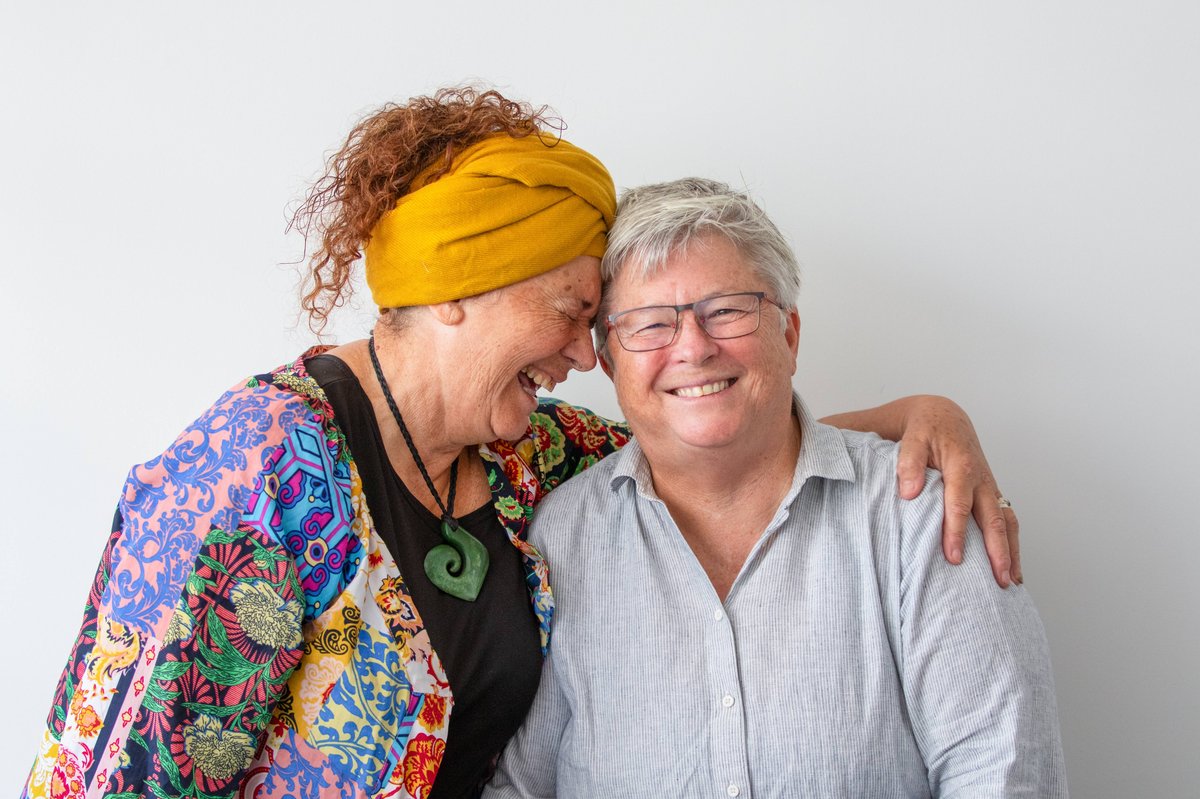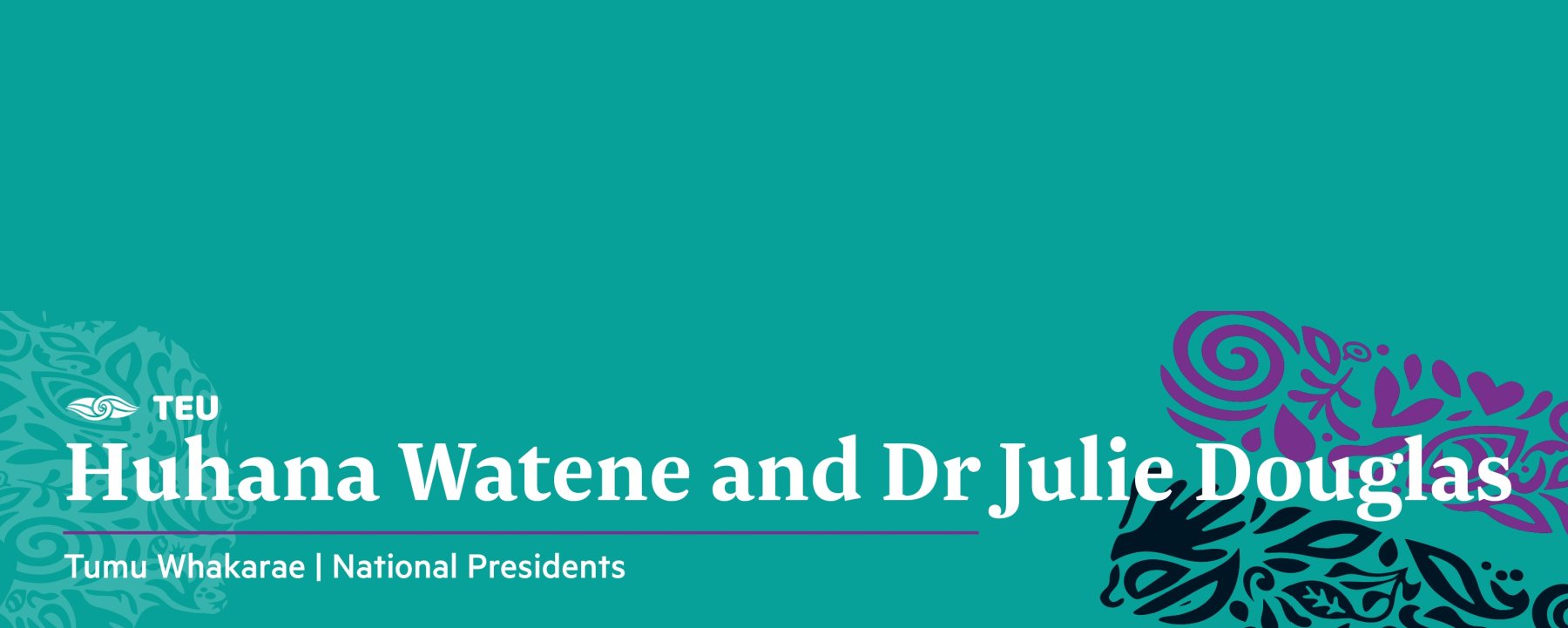Huhana Watene and Dr Julie Douglas.
Sept. 17, 2025

Is there something unique about being mana wāhine in a role like National Co-President?
Huhana
As the first Tumu Whakarae – Māori, I am most honoured to fulfil this role. My contribution to the role is to practice manaaki to members and of course Tumu Whakarae – Tiriti, Dr Julie Douglas. The art of manaaki is to weave, connect, and lay a solid platform that brings people together and is one of TEU’s key union whāinga | values – tātou, tātou e.
Being a strong Māori unionist offers a different lens. That’s what good co-governance is all about, the best of all worlds being woven together.
Julie
It is very humbling being in this role. I think women bring a different perspective to leadership roles and it did take a little while to feel confident that this would be accepted and respected. I do feel accepted and respected and this has made this job so deeply satisfying. Listening and relationship building are really at the core of solid leadership.
But what is good for women is good for men, in the same way that what is good for Māori is good for non-Māori. Our union value of lifting our most vulnerable up is very important for improving the working lives of women in our union. And it is good for all in our union.
What are the key issues facing women in TEU right now that need to be kept high in the minds of all unionists
Huhana
For too long the roles that wāhine Māori have done have been taken for granted or not acknowledged. If we’re not around, then that work is often not done. In fact, that’s the case for all women – we do the heavy lifting of caring and emotional labour that is seen by many as insignificant. Mere Te Tai Mangakahia posed the view that as landowners, and independent Māori women, they met the criteria to vote. Please remember Māori women signed Te Tiriti o Waitangi. From a Māori perspective, the following Whakatauki expresses the mana of wāhine.
“Me aro koe ki te hā o Hine-ahu-one” meaning “pay heed to the dignity and power of women”
Julie
Pay inequities are obviously at the forefront of our campaigns thanks to the coalition government’s decision to stop our claims in their tracks. Aside from this though are the difficulties so many women still face in our institutions around promotions and progressions. I have sat on so many promotions panels where the attitude around assessing women’s achievements and merit contains unacceptable biases.
Women still carry a greater emotional burden in our sector, be that in the range of subject contents or providing pastoral care to students. This usually goes unnoticed and acknowledged.
Statistically women are still managing the greater burden of care work outside of the workplace. Increasingly, this is for not just children but for elder care as well. While some institutions provide good support for women on staff many could do better – particularly around elder care.
Finally, women are still experiencing unacceptable levels of sexual harassment and bullying in workplaces. It makes one wonder when this will ever stop.
All these issues are union issues and must never be overlooked or underestimated in their impact on women.
What do you want for the mokopuna – girls in particular?
Huhana
All mokopuna should have the aroha and awhi to thrive in Aotearoa – where both te ao Māori and Tangata Tiriti values are recognised. Sir Apirana Ngata’s famous Whakatauki shared to a young wāhine:
“tipu, e rea, mo nga ra o tou ao, ko to ringa ki nga rakau a te Pakeha hei ora mo te tinana, ko to ngakau ki nga taonga a o tipuna Māori hei tikitiki mo to mahuna, a ko to wairua ki to Atua, nana nei nga mea katoa". To grow and thrive by embracing the knowledge of the Pākehā for physical sustenance, the wisdom of their ancestors for identity, and their connection to God. Exemplifying the value of both worlds for all our mokopuna.
Julie
All girls, boys and non-binary children need to be supported to have access to opportunities which feed their minds and allow them to pursue their passions. There are still cultural barriers experienced by girls in educational choices particularly in engineering. I want everyone to be able to choose a career that they actually want. Too few people are engaged in occupations or jobs they enjoy. The 70’s slogan “Girls can do anything!” has never been truer. But can we stop with the outcome which seems to have been – Girls have to do everything!
The double workload of formal work and domestic responsibility combined with the significant pay gap, lack of acknowledgement, and promotion prospects just has to stop.

